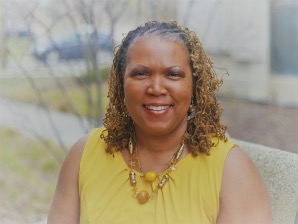
To AI or Not to AI
Just as we are gaining aplomb in maneuvering all of the bells and whistles of Zoom, Facebook Live, and Flipgrid, technology pushes the academy to catch up once again. The world of Artificial Intelligence and robot technology is at the door, not waiting for anyone to open it, but forcefully dismantling the hinges. As many institutions turn their face towards another academic year, faculty, staff, and students must also come vis-à-vis with that which mimics human likeness but which lacks flesh and blood. ChatGPT and its kin models are causing many professors to reboot syllabi, reconstruct lesson plans, and reorient course construction.
ChatGPT or Chat Generative Pre-Trained Tranformers is a type of artificial intelligence. This AI is in essence a chatbot that communicates with people in a proto-human fashion. It also has the “intelligence” to generate unique texts. ChatGPT answers questions via prompts humans provide, composes essays, offers advice, and even gives wellness tips. This generative AI automatically produces content as if it is merely chatting. Whereas the most known model is ChatGPT, there are other forms of generative AI tools. Swimming in the AI waters are Microsoft Bing, Google Bard, OpenAssistant, Hugging Chat, Trinka, AutoGPT, and RizzGPT, to name a few. So not to leave Jesus out of the mix, a newly developed Christian ChatGPT, or BibleMate, purportedly fosters spiritual growth and development.
Sounds okay, right? It’s another resource for students, yes? Perhaps this tool could carry some of the teaching water? A Bible supplement can’t be bad, can it? Maybe. Maybe not.
There could be some benefits to ChatGPT and its family of AI. Students have another research tool. If anyone needs a quick fix, ChatGPT immediately answers when asked. With so much online learning precipitated by Covid-19, such generative chats could lead towards additional academic access. Furthermore, the text-to-speech formats may assist with able-bodiedness and neurodiversity accommodations within the classroom. AI as a teaching tool has the potential to abet grading, creating syllabi, and the developing of ideas to boost classroom participation.
However, where there is good, there is naturally downfall. Because ChatGPT continues to generate the more it is engaged, a student could use it to yield a complete research paper. However, these AI tools do not craft citations. Thus, any professor will give much academic shade to such non-sourced work. After all, the point of a research paper is to discern how well one has engaged scholars who agree and disagree with a declared thesis. The “P” in ChatGPT could stand for “plagiarism.” Additionally, ChatGPT does not guarantee accuracy, nor explain the source of its information. Thus some models provide anachronistic information or refer to events or topics through a specific period or year. Occasionally, what these AI tools proffer is incomprehensible. There is more. My point here is to start the conversation….
Standing on the cusp of another year in the hallowed halls of academia, the question of whether to AI or not to AI is a critical one. AI has been around in some form or fashion for decades, and it is not going away. Dare I say students probably know more about its use than professors. Yet all is not lost. To lessen any angst or disgust take a free course. There could be a way to integrate ChatGPT or the like in one’s classes. Professors could use it as a teaching tool to pin improper citation methods and point to inaccurate information, then pivot to sound research methods and personalized class assignments which cannot be “generated.”
Again, there is more. Here’s to starting the conversation. Actually, here’s to continuing the dialogue as the ChatGPT train has already left the artificial intelligence station.
Leave a Reply